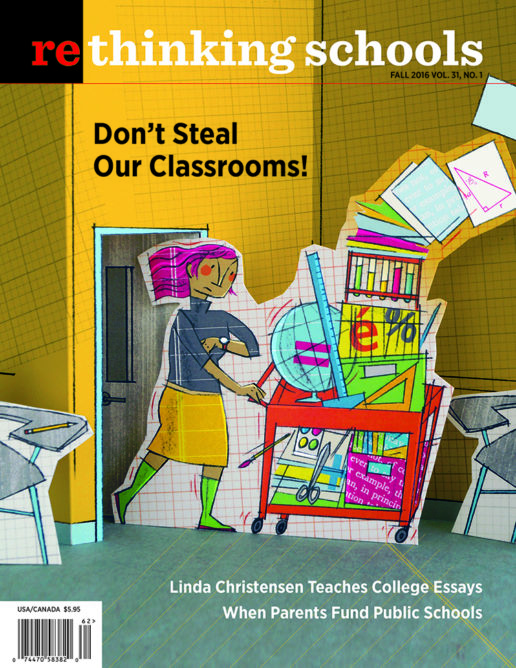Preview of Article:
Space for Young Black Women: An Interview with Candice Valenzuela
Illustrator: Cathy Cade
A few years ago, Candice Valenzuela created and facilitated a group for young Black women at Castlemont High School in Oakland, California. She grounded her work in womanist, Black feminist, and critical pedagogy, as well as her own lived experience as a Black multiethnic woman of working-class origins and a history of trauma. Valenzuela currently coaches early career teachers in culturally relevant teaching, critically conscious pedagogy, holistic wellness, and earth-based spiritual healing.
Jody Sokolower: How did you end up running a group for African American girls?
Candice Valenzuela: I was teaching English at Castlemont High School. The school was transitioning to a focus on social justice, equity, and social change, and it was our pilot year. We noticed certain populations were struggling. And the group that stood out most was African American girls—they were the ones most out of class, the ones their teachers found to be the most challenging, and the ones who had the most complaints about school. We decided to form a class to support them specifically. At the time I was in grad school, so it wasn’t my first choice to be running such an intense group, but the principal convinced me to take it on.
JS: There is so much focus on the crisis among African American boys. Very few people—and most of those seem to be African American women—are talking about African American girls. It’s interesting that at Castlemont, Black girls were identified as the group that was really struggling. Do you think there’s a connection between the focus on Black boys and how much crisis these girls were in?
CV: I do think it’s connected. I want to preface by saying, based on my years of working with students in Oakland, almost all students feel unseen. Period. Across lines of color and gender. Ageism is real, and youth in our society suffer from a lack of voice and a lack of adults seeing them as full human beings with rights and capacities.
And then, too many of our young people experience added layering to that invisibility. With young Black women, it’s extreme.

